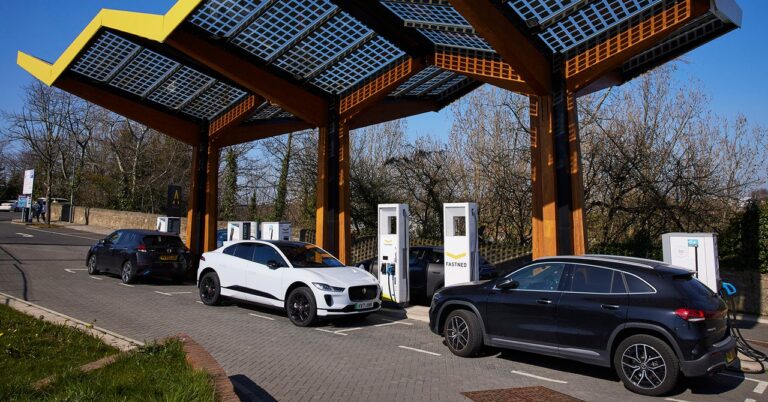Russia’s invasion of Ukraine seems to be a truly pivotal moment in this narrative. By autumn 2022, UK energy prices were soaring, and yet answer of Liz Truss, Prime Minister at the time, was to redouble efforts in oil and gas exploration and refuse to ask people to reduce their energy consumption. It was the absolute opposite approach to many European countries facing the same problem.
At the time (the invasion) happened, it was obviously a real crisis and I thought climate was going to become a priority. But in my technocratic mind, I also thought it would create an incentive to move away from high-carbon fuels. If you want to know what the world looks like with a high carbon price, we’re about to find out.
What I didn’t expect was that the green arguments came out too late because the fossil arguments immediately jumped in to say, “This is why we need a domestic supply of fossil fuels.” “This really important argument, about acting accordingly because fossil fuels are so volatile and so expensive, was slightly ignored in the political ether at the time, and we moved to a different narrative than what the country had to do.
The irony of this whole period is that we are running out of oil and gas. Trying to secure prime oil and gas licenses in the North Sea will therefore not be a credible long-term strategy.
A year later, Truss’s successor, Rishi Sunak, made a big speech by revisiting key climate policies, including pushing back the 2030 deadline banning the sale of new gasoline and diesel cars.
If you look at it purely as political speech, there has been more pro-climate policy than delayed climate policy. This is the one where he talks about accelerating green investments, for example. And the problem of electric vehicles (pushing back the deadline to 2030) has not really changed, since we already authorize hybrids until 2035.
But what did the country hear? They heard: “Don’t worry, now is not the time to switch to electric vehicles. » It’s difficult to tie anything to a single speech, but if you look at the share of electric vehicles sold in the UK, it has been stagnant since September. I’m sure there are other factors here, but there will be people who think, “Well, maybe I don’t need to get this electric car right now.” »
It seems that this government has decided to make appealing to motorists a key strategy of its campaign. In July 2023, Labor narrowly lost the Uxbridge and South Ruislip by-elections, and many commentators believed that the Conservative candidate won these elections due to his opposition to the party. Very low emissions zone.
What happened there was interesting. Labor also accepted the idea that ULEZ was the reason they did not win this constituency. Inevitably in any election there are a multitude of issues at stake, but if all parties believe that it is about environmental policies, it is not surprising that this subsequently becomes one of the dominant themes of the policy.


